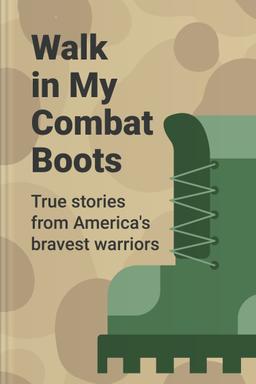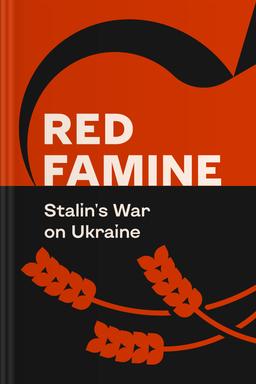What is The Choice about?
This transformative memoir details the author's journey from a Holocaust survivor to a renowned psychologist. Through personal anecdotes and therapeutic insights, it explores themes of resilience, healing, and the power of choice in shaping one’s life. The author challenges readers to confront their past, embrace possibility, and find freedom through self-acceptance and empowerment. It's a poignant reminder that we can choose how to respond to life’s challenges.
Who should read The Choice
- Survivors seeking hope and resilience in adversity.
- Readers interested in psychology and personal transformation.
- Anyone looking for inspiration to overcome life's challenges.
What is Walk in My Combat Boots about?
This powerful collection of true stories offers an intimate look into the lives of America's soldiers. Through firsthand accounts, readers experience the courage, camaraderie, and challenges faced by these brave warriors in combat. Each narrative reveals not only the harsh realities of war but also the enduring spirit and resilience of those who serve, providing a profound understanding of their sacrifices and heroism.
Who should read Walk in My Combat Boots
- Veterans seeking relatable war experiences.
- History enthusiasts interested in personal military accounts.
- Readers of inspirational stories about courage and resilience.
What is The New Confessions of an Economic Hit Man about?
This insightful narrative reveals the author's experiences as an economic consultant, exposing the manipulation of developing nations through debt and exploitation. It details the tactics used by powerful corporations and governments to control economies and resources, highlighting the moral dilemmas faced by those involved. The book serves as a wake-up call about the consequences of economic imperialism and urges readers to rethink global capitalism.
Who should read The New Confessions of an Economic Hit Man
- Readers interested in global politics and economics.
- Individuals curious about corporate manipulation and exploitation.
- Students studying international relations and social justice.
What is Red Famine about?
This gripping historical account explores the devastating man-made famine in Ukraine during the early 1930s, orchestrated by the Soviet regime under Stalin. It examines the political motives behind the famine, the suffering endured by millions, and the long-term impacts on Ukrainian society and identity. Through meticulous research and personal narratives, the book reveals a dark chapter of history marked by oppression, resilience, and the struggle for survival.
Who should read Red Famine
- History enthusiasts seeking to understand Soviet policies.
- Students studying 20th-century Eastern European history.
- Readers interested in human rights and governmental oppression.
What is The Soul of America about?
This insightful exploration delves into the historical struggles of American ideals and morality, emphasizing the enduring battle between hope and fear, empathy and division. Through vivid portraits of pivotal figures, the narrative highlights moments when the nation has faced its darkest challenges but ultimately triumphed through the power of compassion and unity. It serves as a poignant reminder of the resilience of the American spirit in tumultuous times.
Who should read The Soul of America
- History enthusiasts seeking a deeper understanding of American ideals.
- Political science students exploring the concept of national identity.
- Readers interested in contemporary social justice and civic engagement.




